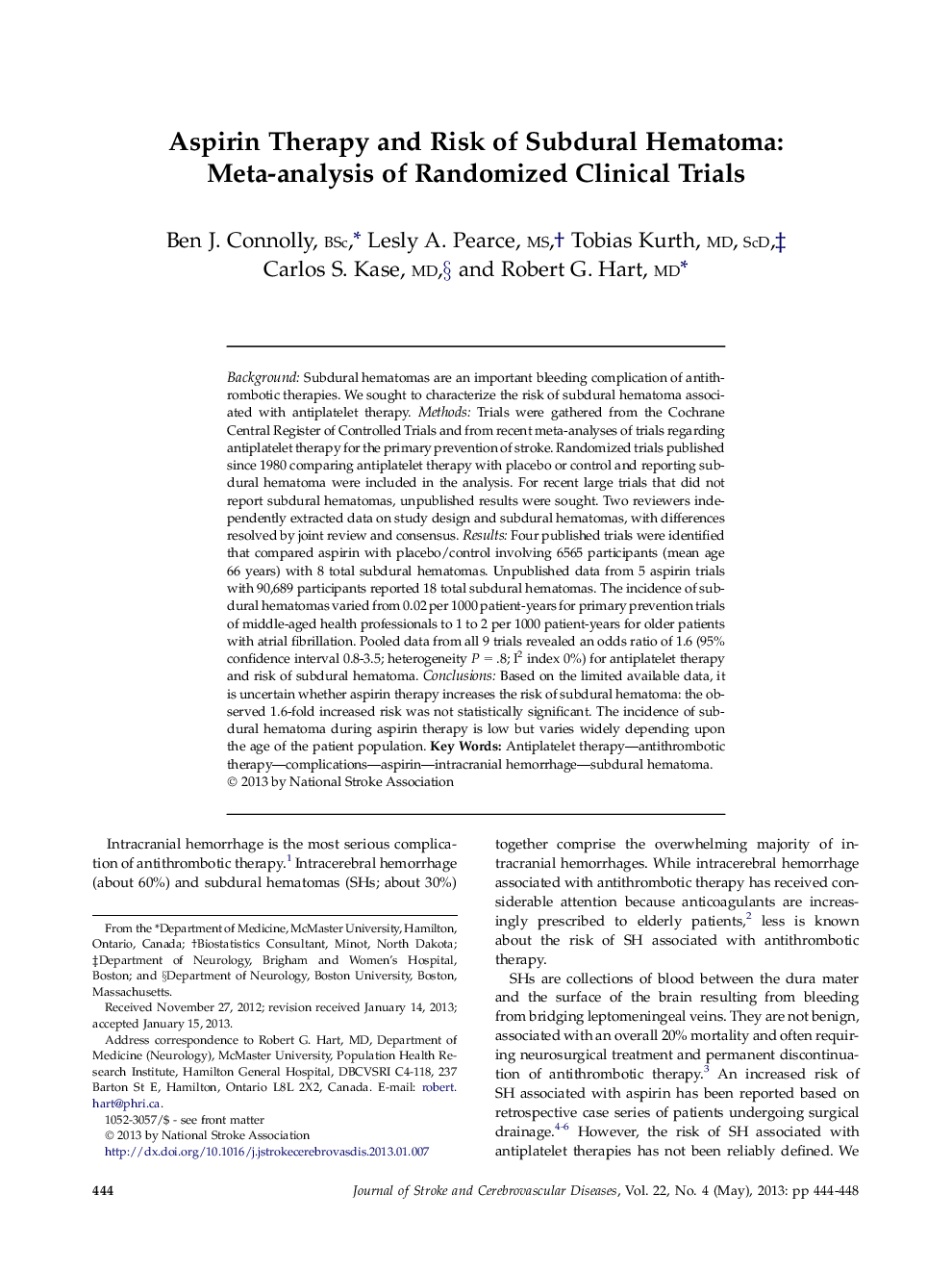| Article ID | Journal | Published Year | Pages | File Type |
|---|---|---|---|---|
| 2710828 | Journal of Stroke and Cerebrovascular Diseases | 2013 | 5 Pages |
BackgroundSubdural hematomas are an important bleeding complication of antithrombotic therapies. We sought to characterize the risk of subdural hematoma associated with antiplatelet therapy.MethodsTrials were gathered from the Cochrane Central Register of Controlled Trials and from recent meta-analyses of trials regarding antiplatelet therapy for the primary prevention of stroke. Randomized trials published since 1980 comparing antiplatelet therapy with placebo or control and reporting subdural hematoma were included in the analysis. For recent large trials that did not report subdural hematomas, unpublished results were sought. Two reviewers independently extracted data on study design and subdural hematomas, with differences resolved by joint review and consensus.ResultsFour published trials were identified that compared aspirin with placebo/control involving 6565 participants (mean age 66 years) with 8 total subdural hematomas. Unpublished data from 5 aspirin trials with 90,689 participants reported 18 total subdural hematomas. The incidence of subdural hematomas varied from 0.02 per 1000 patient-years for primary prevention trials of middle-aged health professionals to 1 to 2 per 1000 patient-years for older patients with atrial fibrillation. Pooled data from all 9 trials revealed an odds ratio of 1.6 (95% confidence interval 0.8-3.5; heterogeneity P = .8; I2 index 0%) for antiplatelet therapy and risk of subdural hematoma.ConclusionsBased on the limited available data, it is uncertain whether aspirin therapy increases the risk of subdural hematoma: the observed 1.6-fold increased risk was not statistically significant. The incidence of subdural hematoma during aspirin therapy is low but varies widely depending upon the age of the patient population.
